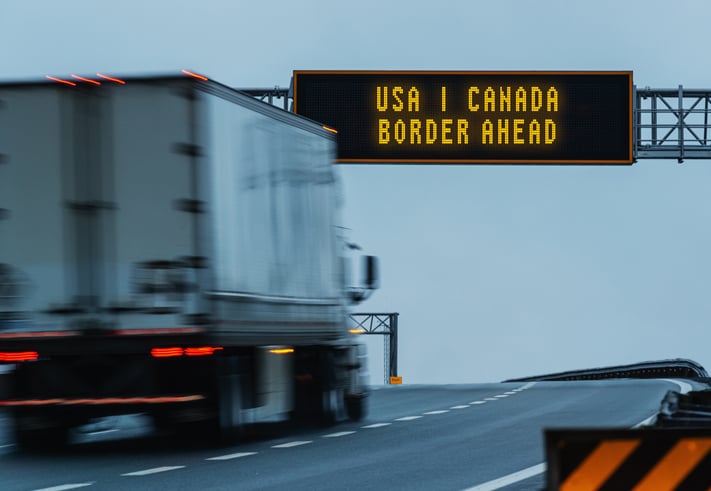Supply Chain News Roundup: Trade Discussions with Canada Resume

Trade talks between the U.S. and Canada have begun again, after Canada walked back its plan to tax U.S. technology firms. The talks had been suspended Friday, with President Donald Trump calling the Canadian plan “a direct and blatant attack on our country,” the Associated Press reported.
The tax, which was to have started Monday, would have levied a 3-percent charge on Canadian revenue above US$20 million on such tech giants as Amazon and Apple. “It was estimated that Canada’s tax would cost the tech giants more than ($1.5 billion) in its first year as the tax was being applied retroactively to January 2022,” a BBC report stated.
Canada is one of the U.S.’s two largest trading partners (Mexico is the other). “Most recently, in 2024, Canada was the top destination for U.S. exports and the third-largest source of U.S. imports, the Office of the United States Trade Representative (USTR) says on its website. “Canada exported over three-quarters of its goods to the United States and imported almost half of its goods from the United States.”
Last year, the U.S. exported $349.4 billion worth of goods to its northern neighbor, while Canada exported $412.7 billion in goods to the U.S. The trade deficit of $63.3 billion last year was a 1.4 percent decrease from 2023, according to the USTR.
Goodbye Pause
While not at pandemic peaks, the number of container ships has been increasing at the Ports of Los Angeles and Long Beach: Companies are hurrying to bring in goods before tariffs rise globally.
The 90-day pause on tariffs for many nations that Trump established in April is set to expire July 9. On Sunday, the Associated Press reported he is not planning to extend that pause for most nations beyond that date “and his administration will notify countries that the trade penalties will take effect unless there are deals with the United States.”
Over a three-day period last week, the average reached 65.3 ships, the highest level since January. In May, the average dropped to 47.2, a Bloomberg report stated, citing research from the Marine Exchange of Southern California. There is no expectation of congestion, CNBC reported.
“We’ve been coordinating closely with terminal operators, labor and our other partners to ensure they have what they need as we look forward to increased cargo flow,” Mario Cordero, CEO of the Port of Long Beach, told CNBC. “We welcome the additional cargo and look forward to a resolution of the trade policy issues that have led to so much uncertainty for shippers.”
The Race for Deals
In addition to shipping response, countries also are racing to negotiate deals with the U.S. before the tariff pause ends. “But the discussions have been slowed because Mr. Trump has threatened to impose more tariffs even if those deals are in place,” The New York Times reported.
The report cites India, Vietnam, Japan, the European Union and Malaysia as among the countries looking to avoid higher tariffs through deals.
Is July 9 a firm date? Maybe not.
U.S. Treasury Secretary Scott Bessent has hinted that “there may be some extensions to wrap up major pacts by the Labor Day holiday,” according to a Bloomberg report.

